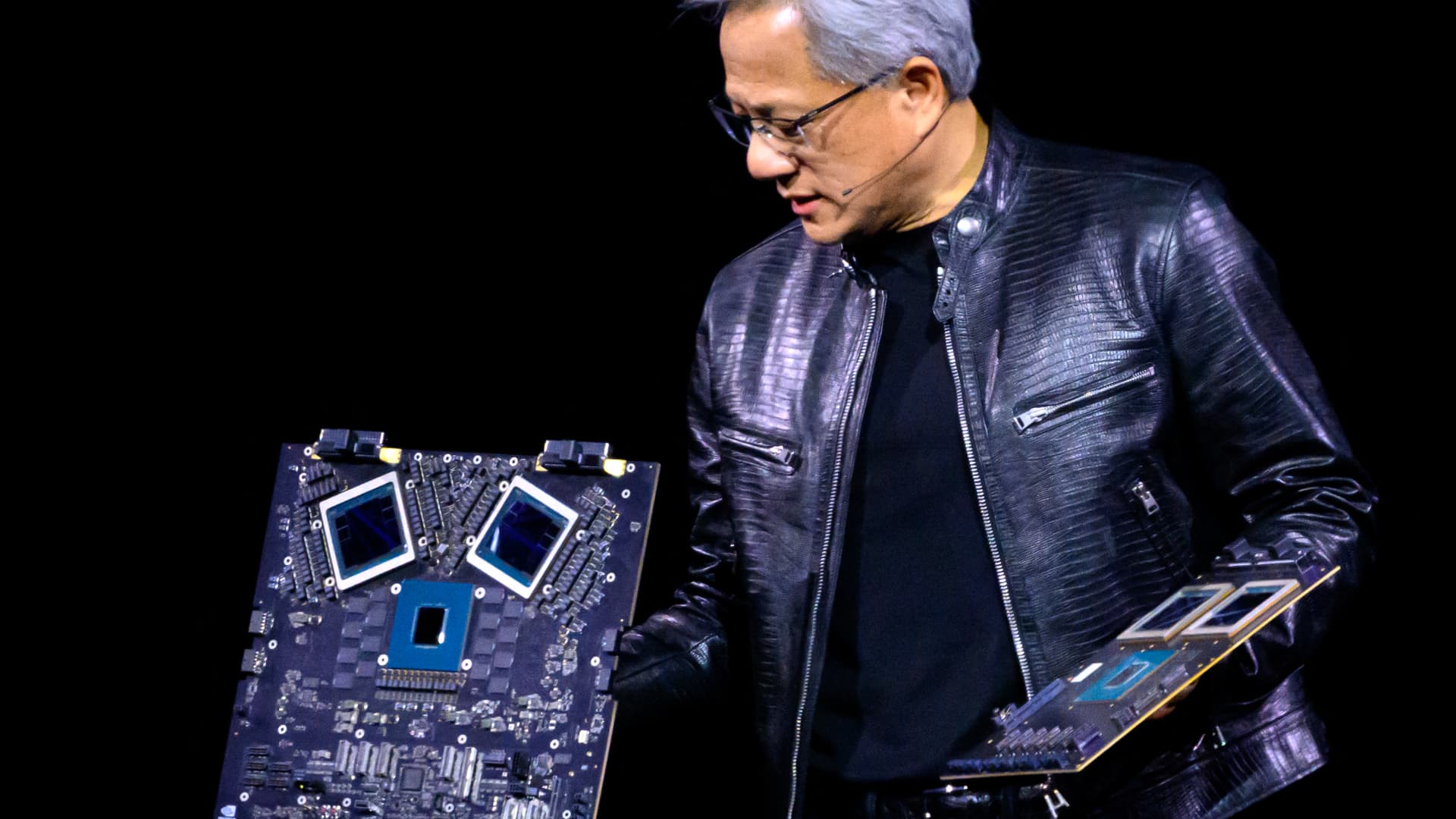
Nvidia founder and CEO Jensen Huang displays products onstage during the annual Nvidia GTC Conference at the SAP Center in San Jose, California, on March 18, 2024.
Josh Edelson | Afp | Getty Images
Chipmaking giant Nvidia has entered “correction territory,” with its shares now down 10% from their most recent all-time closing high.
The company, which makes graphics processing units — or GPUs — has been a key beneficiary of the artificial intelligence boom, which boosted demand for its chips.
Nvidia GPUs are commonly used for compute-intensive AI applications, such as OpenAI’s ChatGPT AI chatbot. Its server chips are also a key component of data centers.
The company’s financial performance has been on a tear in the past year. It reported a 486% jump in non-GAAP earnings per diluted share in the December quarter, citing huge chip demand, thanks to the popularity of generative AI models.
The stock has come under pressure for the past two weeks, however. The shares are off 10% from their last all-time closing high of $950 apiece, which they hit on March 25. The stock closed at a price of $853.54 on Tuesday, down 2% for the session.
Nvidia’s shares are down less than 1% in U.S. premarket trading Wednesday.
Definitions on what constitutes a market correction vary, but it is generally considered to be a sustained drop of 10% or more from all-time highs.
What’s the reason for the decline?
The exact reason for the downward move hasn’t been immediately clear. Investors could be taking profit on the stock, after a wild gain of more than 200% for the shares in the last 12 months. And on Tuesday, rival chipmaker Intel unveiled a new AI chip called Gaudi 3, aimed at powering large language models — the cornerstone technology behind generative AI tools like OpenAI’s ChatGPT.
Intel said the new chip is over twice as power-efficient as Nvidia’s H100 GPU — the U.S. chip giant’s most advanced graphics card — and can run AI models 1½ times faster than this tech.
Analysts at D.A. Davidson said in a research note that they expect a “shrinking” of the size of AI models, including alternatives like Mistral’s Large model and Meta’s LLaMA system, to drive down demand for Nvidia’s stock over time.
“Although NVDA (Neutral-rated) should deliver a spectacular 2024 (and perhaps into 2025), we continue to believe recent trends set up a significant cyclical downturn by 2026,” D.A. Davidson analysts said in the note Tuesday.
“A combination of shrinking models, more steady growth in demand, maturing hyperscaler investments, and increased reliance by their largest customers on their own chips do not bode well for NVDA’s out years.”
— CNBC’s Ganesh Rao contributed to this report.
